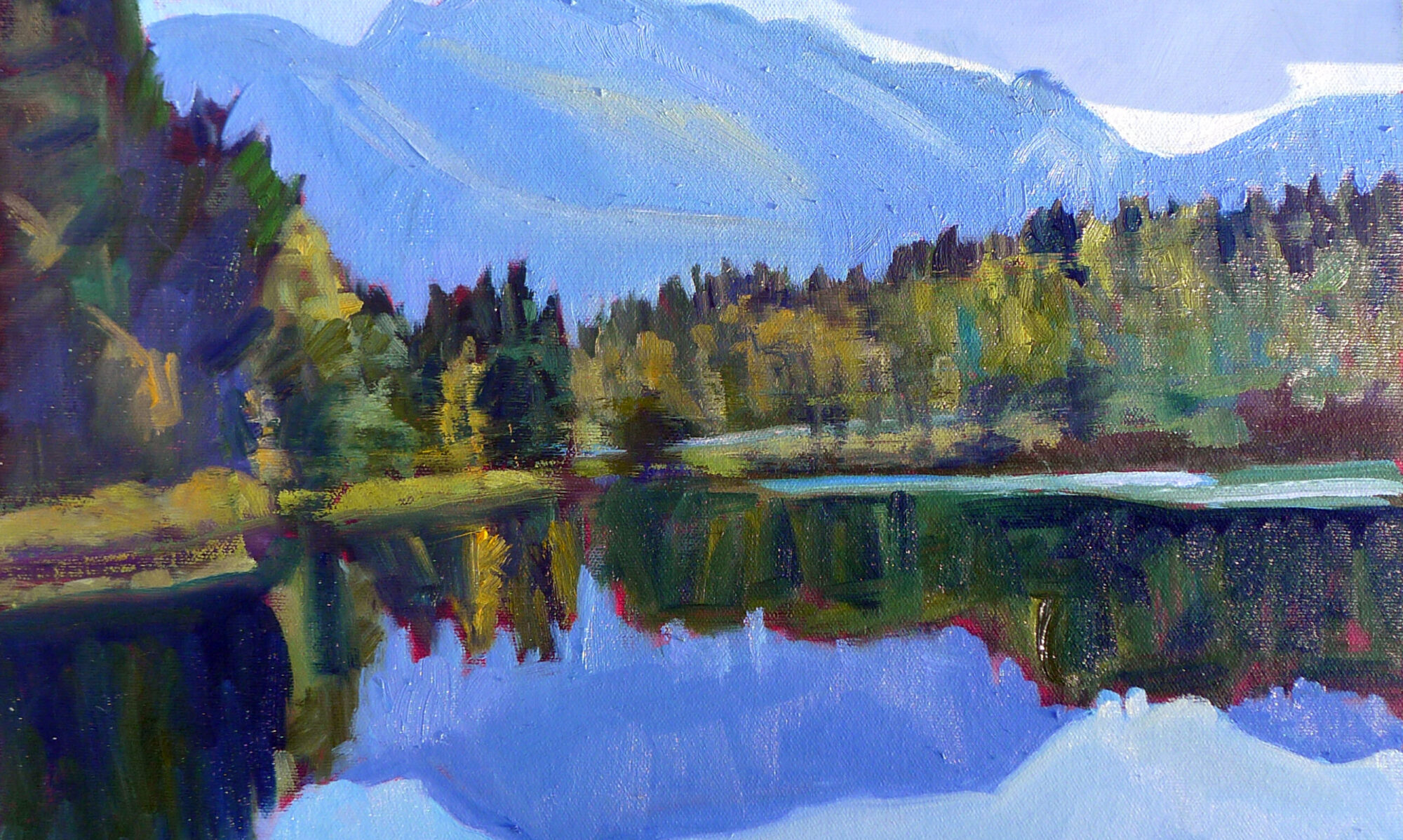Slowing down, shutting up and listening to the Universe—I find that difficult.
| Waiting to play, oil on canvasboard, by CarolmL. Douglas. No, that’s not my Penn Yan. |
When I brought my Penn Yan back this March, it was in recognition that there was something missing in my life. When work is all-consuming, it’s easy to end up with no hobbies. I walk and I read, but these are self-care. The creative things I used to do—sewing, gardening, playing the piano—have all been sacrificed because of time.
Ken DeWaard helped us pull the boat off its trailer so I could start restoration at the very bottom. I then came face-to-face with the second limitation of my current life: I really don’t have the time or energy for new projects. In this world of merciless measurement, my phone tracks my steps. I regularly have more than 10,000 a day without trying. I start at 6 AM and I work until I can’t move anymore. Then I get up the next day and do it again, six days a week.
| White Sands of Iona, oil on canvasboard, by Carol L. Douglas. Unless Boris Johnson has a fast change of heart, I won’t be relaxing in Scotland this year, either. |
Working until you drop may work for 30-somethings, but it’s not a lifestyle I recommend at retirement age, which is where I am right now. Don’t worry; I don’t intend to quit. Wayne Thiebaud (age 100) and Lois Dodd (94) are my role models. Still, there’s something that shifts, if not in your body, then in your worldview, as you enter the social desert we call “old age.”
Sometimes you hear the universe talking; I believe that’s God. For a while now, I’ve been hearing the same message: “Slow down, shut up, and listen.” That’s not an easy message for a person of my temperament to accept, but I’m trying.
I’m an old workhorse. Let off my traces, I just amble back to the barn to be harnessed back up. It’s hard for me to break my routine. I think that’s really a problem for most of us. We’ve worked so hard for so many years that we can’t cope with freedom, as much as we talk about it during our working years. We tend to choose passive recreation—television, movies—instead of creative recreation. It’s been worse this year, when so many options have been reduced.
| Beaver Dam, oil on canvasboard, by Carol L. Douglas |
Sadly, some people who find the adjustment to retirement difficult resort to drinking to fill the void. Studies have found that retirement leads to increased drinking. (Alcohol is the most common form of substance abuse by older adults). Having my share of alcoholic role models, the possibility frightens me.
The question I’ve been asking myself is a silly, Konmari one: what brings me joy? There are lots of answers, including but not limited to: my family, nature, being on the water, my friends. I mean to incorporate them more in my day-to-day life, instead of pushing them all off to some far-off point of retirement.
 |
| Home farm, oil on canvas, by Carol L. Douglas |
That’s a long, roundabout way of telling you that I’m skiving off work today and going hiking with Seven Dwarfs (really middle- and elementary-school kids) and their parents, who are my friends. (Yes, the kids are skipping school, too, which really brings me joy.) We’re going to Mt. Apatite to look at minerals. I imagine they’ll learn something, but that’s just coincidental. We’re slowing down, shutting up and listening to the Universe. It’s never too soon to start.


